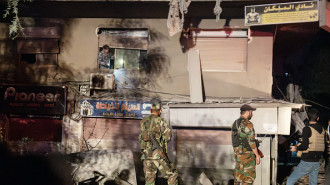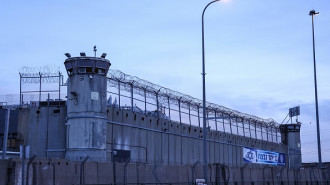UN chief urges support for victims of terrorism
UN Secretary-General Antonio Guterres on Tuesday urged people around the world to support victims of terrorism and their families, describing it as "a moral imperative" to promote, protect, and respect their human rights.
Guterres said in a statement on the first International Day of Remembrance of and Tribute to the Victims of Terrorism that "caring for victims and survivors and amplifying their voices helps to challenge the narrative of hatred and division that terrorism aims to spread".
"When we lift up the victims and survivors of terrorism, listen to their voices, respect their rights and provide them with support and justice," Guterres said.
"We are honouring our common bonds, and reducing the lasting damage done by terrorists to individuals, families and communities."
Last December, the UN General Assembly adopted a resolution "deeply deploring the suffering caused by terrorism to the victims and their families" and proclaimed 21 August as the annual day to honour and support victims and survivors.
The UN chief's remarks follow similar statements made on Friday, where at the opening of an exhibition from the global body entitled "Surviving Terrorism: Victims' Voices", to commemorate the first annual international day, he said victims have a powerful role to play in combatting the "global menace".
"We can all learn from those who have experienced terrorism," Guterres said.
Guterres' words were accompanied by those of survivors of terror attacks, including Hasan Wahhab Al Araji, an Iraqi man who spoke of his anxiety and joyless life after his best friend Mohammed was abducted and killed by al-Qaeda militants.
He also lost his 24-year-old lawyer cousin Saif in a car bomb, while another cousin, 31-year-old Yahiya, was found riddled with shrapnel after a suicide bomber targeted a neighborhood mosque.
"I had difficulty sleeping and was unable to concentrate," Al Araji said at the exhibition opening.
"I often displayed aggressive and nervous behavior... I often feared and imagined losing my own life and that more of my loved ones would soon be killed."
He said it took him "a very long time to return to normalcy", stressing that the need for medical and psychological treatment for victims in Iraq is "dire".
He now works with local and international human rights organisation to fight "the narrative of terrorism" and to "be part of a positive message that encompasses peace and hope".
Nigerian Imrana Alhaji Buba spoke of being traumatised after Boko Haram extremists stopped a bus he was in heading to the University of Maiduguri where he was studying in June 2010. He escaped being taken because "they thought that I was dead".
While recovering from that trauma, he said two uncles were killed by a bomb dropped in a crowded place close to a market, a neighbour was murdered, and a friend was kidnapped for almost three weeks until his father paid a ransom.







 Follow the Middle East's top stories in English at The New Arab on Google News
Follow the Middle East's top stories in English at The New Arab on Google News


![A woman walks in front of a shop selling traditional items in the Old City of Tripoli on September 11, 2024. [Getty]](/sites/default/files/styles/image_330x185/public/2170635815.jpeg?h=37b4805e&itok=c11tWdx-)